NAA Associated Diseases and Biomarkers
Natural autoantibodies (NAA) are a seminal part of the immune system and have become hotspots in the immunology field. With years of experience and high-end technologies, Creative Biolabs has successfully developed a series of innovative and diversified NAA platforms to provide fast and convenient services for our worldwide customers. Based on the studies of various NAA associated diseases, we now can provide the largest and most diverse portfolio of premade or custom NAA products and services.
Background of Natural Autoantibodies (NAA)
Natural autoantibodies (NAA), displaying a moderate affinity for self-antigens, are a kind of antibodies that arise independently of antigenic or mitogenic stimulation and can be detected in the sera of healthy humans and animals. Since the first report by Boyden in 1965 (more than 50 years ago), NAA has been found in virtually all vertebrate species. The majority of NAA are particularly IgM isotype, with a less extent of IgG and IgA isotypes. The essence of NAA are immunoglobulins that react with at least one self-antigen, whether they originate from healthy individuals or patients with autoimmune disease. NAA can recognize a wide variety of self-antigens, including insulin, DNA, thyroglobulin, nucleoproteins and phospholipids, which are also targeted during the progression of autoimmune disorders.
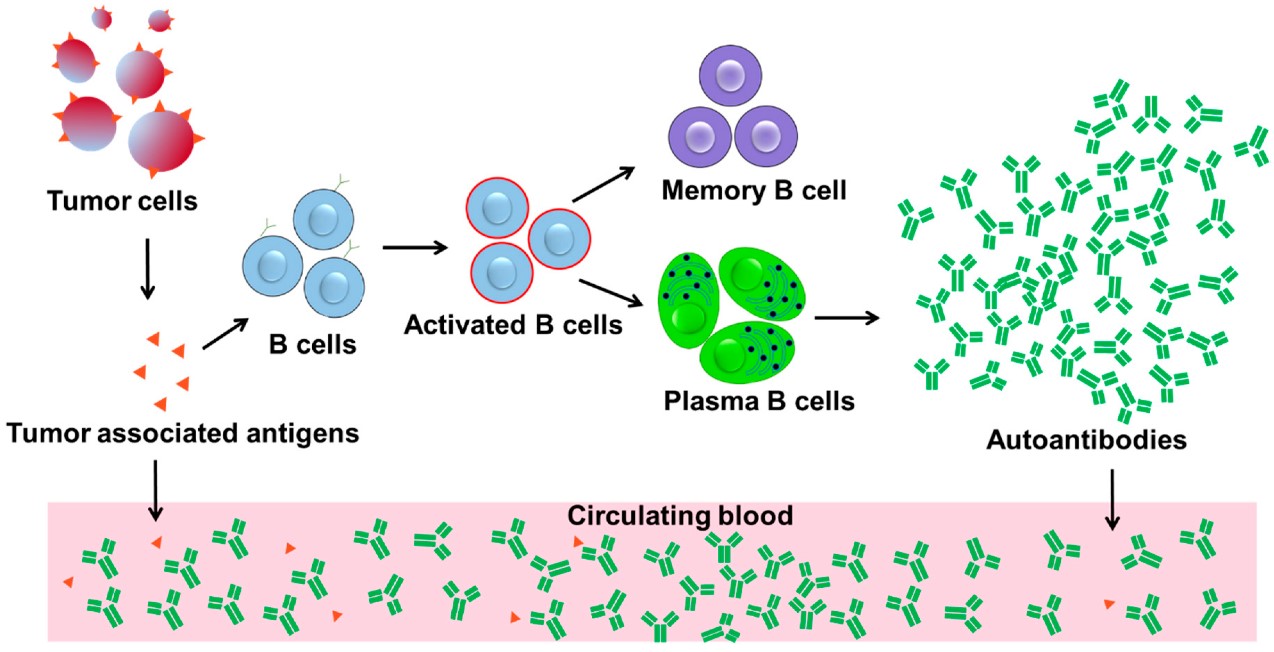 Fig.1 Schematic diagram of autoantibody production and amplification by antigen stimulation. (Qiu, 2018)
Fig.1 Schematic diagram of autoantibody production and amplification by antigen stimulation. (Qiu, 2018)
Characteristics of NAA
-
Polyreactivity
Most of the NAA are polyreactive, meaning that they are capable of recognizing several self- or foreign-antigens. It is documented that complementarity determining region 3 (CDR 3) in its VH domain is primarily involved in determining the relative polyreactivity of NAA.
-
Low-serum titer
The titer of NAA in healthy human serum is very low, however, the high titer of NAA is found to correlate with disease activity in patients with systemic lupus erythematosus (SLE) and primary antiphospholipid syndrome (PAPS), indicating a pathogenic role for NAA.
-
Low-affinity
NAA exhibits low affinities but high reactivities for self-antigens.
-
Connectivity
NAA has been shown to express higher degrees of connectivity and form a connectivity network with other antibodies or with many different self-antigens. The network responses between low-affinity NAA can generate new biological activities, which are derived from the combined effects of the network.
Functions of NAA
NAA is engaged with a variety of homeostatic “housekeeping” functions, such as maintenance of immune homeostasis, regulation of the immune response, etc. NAA also plays a crucial role in the very early innate immunity, providing an essential first line of defense against pathogens. It is reported that NAA may participate in clearing apoptotic cells and oxidized cellular damaged structures, maintaining the homeostasis of the organism. There is also mounting evidence that NAA takes part in tumor surveillance by recognizing oligosaccharides expressed on tumor cells. On the other hand, NAA may cause tissue damage or malfunctions, inducing autoimmune diseases, by binding with self-proteins. At present, NAA screening has been used in the clinic for the diagnosis of autoimmune disease in its early stages and to intervene before installing injuries.
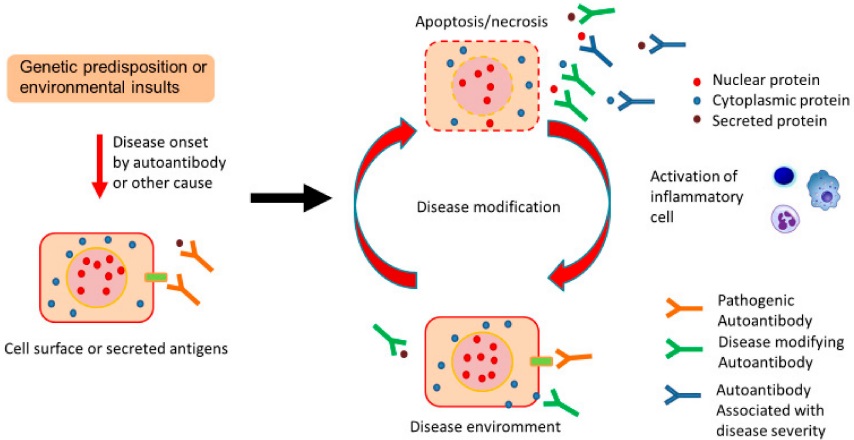 Fig.2 Hypothesized role of natural autoantibodies in long-term lung conditions.2
Fig.2 Hypothesized role of natural autoantibodies in long-term lung conditions.2
Clinical Significances of NAA
Because of the high relevance with many diseases, NAA may announce the status of diseases or predict further clinical evolution of the diseases. Several classes of NAA with specificity for different types of systemic autoimmune diseases, or organ-specific autoimmune diseases have been studied deeply. There is a wide range of diseases have been demonstrated to be associated with NAA, mainly include:
- Autoimmune Disorders
- NAA Associated Infectious Diseases
- NAA Associated Neurological Diseases
- NAA Associated Cardiovascular Diseases
- NAA Associated Endocrine Diseases
- NAA Associated Hematological Diseases
- Nephropathy
- NAA Associated Pulmonary Diseases
- NAA Associated Autoimmune Cancers
A large number of NAA targets have been discovered in recent years, which may be potential clinical indicators for disease diagnosis. For example, autoantibodies to islet cell, insulin (IAA), glutamic acid decarboxylase (GAA or GAD) and protein tyrosine phosphatase have all been described in association with the development of type 1 diabetes; autoantibodies to anti-nuclear antibody (ANA), dsDNA, ribonucleoprotein (RNP), rheumatoid factor (RF), C3 and C4 are associated with systemic lupus erythematosus (SLE).
What Can We Do About NAA?
Aided by our well-established platforms and experienced scientists, we can provide comprehensive NAA services, from NAA detection to NAA epitope mapping. A wide spectrum of NAA products is available for your choice.
Features of Our Services
- Seasoned technology
- High efficiency
- One-stop pipeline
- Best after-sale service
Creative Biolabs is capable to provide different products and services about NAA. Our proven and optimized platforms can help you quickly get satisfactory results without repeated trials. We also provide custom services based on the requirements of the clients to meet the specific demand. Please contact us for more information.
References:
- Qiu, Jingyi, et al. "Autoantibodies as potential biomarkers in breast cancer." Biosensors 8.3 (2018): 67.
- Fukushima, Kiyoharu, et al. "Natural autoantibodies in chronic pulmonary diseases." International Journal of Molecular Sciences 21.3 (2020): 1138.
-
Autoimmune Disorders
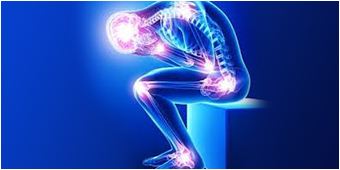
Autoimmune disorders refer to the diseases caused by abnormally low activity or overactivity of the immune system. In these cases, the immune system doesn’t tell……
Learn More -
NAA Service for Infectious Diseases

Infectious diseases are disorders caused by pathogenic microorganisms, such as bacteria, viruses, fungi or parasites. Natural autoantibodies can be detected with……
Learn More -
NAA Detection and Profiling Service Based on Neurological Diseases
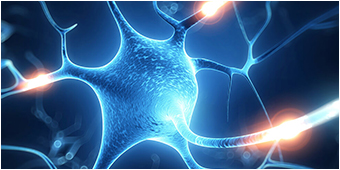
Neurological diseases are a kind of disorders of the brain, spinal cord or other structural nerves, including biochemistry or electrical abnormalities. Because of the close……
Learn More -
NAA Service for Cardiovascular Diseases
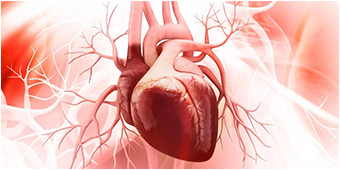
Cardiovascular diseases (CVD) are heterogeneous diseases involved the heart or blood vessels, which include coronary heart disease (CHD), peripheral vascular……
Learn More -
Endocrine Diseases
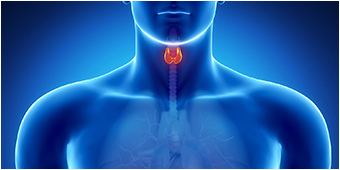
Endocrine diseases are dysfunctions of the endocrine system, normally including diabetes, thyroid disease, growth disorders, sexual dysfunction, and a host of other……
Learn More -
Hematological Diseases
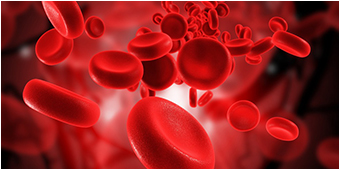
Hematological diseases mean that the constituents of blood (red blood cells, white blood cells, platelets, blood vessels, bone marrow, lymph nodes, spleen, and the……
Learn More -
NAA Service Based on Nephropathy
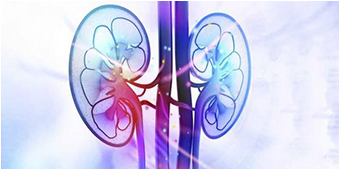
Nephropathy is a broad spectrum of renal damages or diseases, which can eventually result in kidney failure. Several natural autoantibodies have been implicated……
Learn More -
Pulmonary Diseases
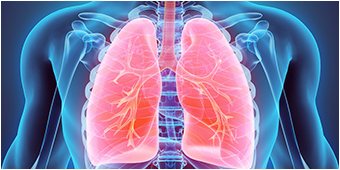
Pulmonary diseases are conditions in which some function of the lung is adversely affected, causing breathing problems and preventing the body from getting enough oxygen. In the……
Learn More -
Cancers
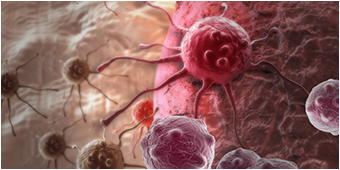
Cancers are a group of diseases characterized by the development of abnormal cells that divide uncontrollably and have the ability to infiltrate and destroy normal body……
Learn More

